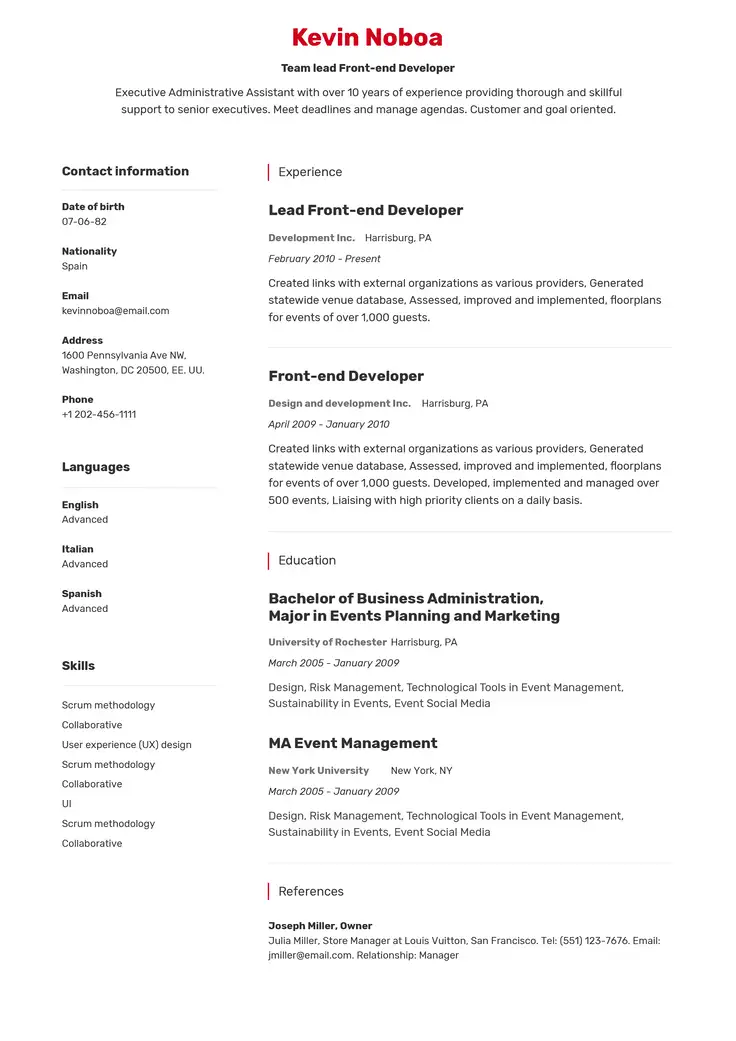Certifications on the resume
Bring attention to your extra qualifications by listing your certificates.

Do you think that your resume looks a bit flat?
If that’s the case, adding certifications can help you prove that you’re an expert in your field and stand out to hiring managers.
Certifications help provide proof of the following on your application:
- Your skill set
- Suitability to the role
- Your desire to improve
However, you may be wondering what’s the best way to list them. In this guide, we’ll put those doubts to rest by going over:
- How to list certifications on a resume
- Different certifications on resume examples
- Ideal ways to format a training section and list
Keep reading to find out how to better write your resume by understanding the different acceptable ways to list your training and titles.
How Do You List Certifications on a Resume?
Showing certifications on a resume is key to standing out in the running for a job vacancy. This is why it’s so important to understand how to indicate resume certifications, memberships, and licenses.
Follow the steps below to learn how to add certifications to your resume:
1. Decide which of your certifications is most relevant to the vacancy to avoid adding any unnecessary information.
2. Determine what should be included in a certificates section on a resume and what should be classed as honors and awards. Keep in mind that certain accomplishments may have given you a certificate, but they do not always fit the category of certifications and licenses for a resume.
3. Create a certifications and licenses resume section dedicated specifically to this information. However, depending on your profile, you may add your titles directly to your education section.
4. Separate your licenses or certifications in various sections. This could be as part of the initial name and contact information as initials in the case of licensed accountants, lawyers, doctors, nurses, etc. Or you could mention your diploma or license in your summary statement.
If you’re unsure of where to list your certifications, you can also use our handy resume builder to make the job much easier.
Resume Certifications Format
Just like the rest of your application, your resume should follow a certain format. The generally accepted format for a certifications section follows these rules:
- Write each certification in reverse chronological order, beginning with the most recently achieved or any that are in progress.
- Include irrelevant certifications in another area such as training, skills, or accomplishments.
- Any acronyms should be written out in full at least once to be understood by hiring managers who are not specialists in your area. The acceptable certification format should use the following structure:
- Name of Certification/License/Membership
- Name of Certifying body
- Dates obtained and expiration (if applicable)
- Location (if State appropriate)
You can also take advantage of our ready-made templates to create the ideal format for your resume and certifications in seconds.
Using Expired Certifications on a Resume
It is not acceptable to list old or expired certifications on a resume. If you have a certain certificate from a course or license from a degree etc. that has a possible expiry date, you must renew your certification before this date to include it on your resume.
In the case you’re taking a course or have not yet completed the necessary requirements to be licensed in a specific area, simply add ‘in progress’ to the description and stipulate the anticipated completion date.
Finally, it is very important to avoid lying on your resume and not include any certifications that you do not have.
Types of Certifications to Include on a Resume
Different types of certifications should be included on a resume depending on the type of job seeker and the industry and position that the resume is for.
An appropriate resume certification could be:
- Vocational
- Technical
- Academic
Certifications to list on a resume also include any professional licenses, courses, and certificates authorized by prestigious organizations, universities, or societies.
Some examples of appropriate certifications to list on a resume are the following:
- ServSafe (Food handling certification for the hospitality industry)
- OSHA Certification (Used in health and safety for multiple industries)
- PMP – Project Management Professional Certification
- ESL Certification (or other language certifications)
- CPA – Certified Public Accountant
- RN – Registered Nurse + Speciality
- PEM – Professional Engineering Manager Certification
- CBAP – Certified Business Analysis Professional
- CDL – Commercial Driver’s License
Certifications on a Resume Example
As it can be challenging to know how to list certifications on a resume, we’ve created this sample for you to use as a guide:
Certifications
Certified Project Management Professional (PMP)| ABC Institute | 2023
- Demonstrated advanced skills in project planning, execution, monitoring, and resource balancing.
- Completed 35 hours of project management education.
- Certified Data Analyst (CDA)
Data Analysis Certification Institute | XYZ Academy | 2022
- Gained proficiency in data analysis tools including SQL, Python, and Tableau.
- Completed a comprehensive project showcasing data-driven decision-making skills.
This example can help you find the best way to structure your section. Use our sample along with other resume examples to create a job-winning resume and start impressing hiring managers!

